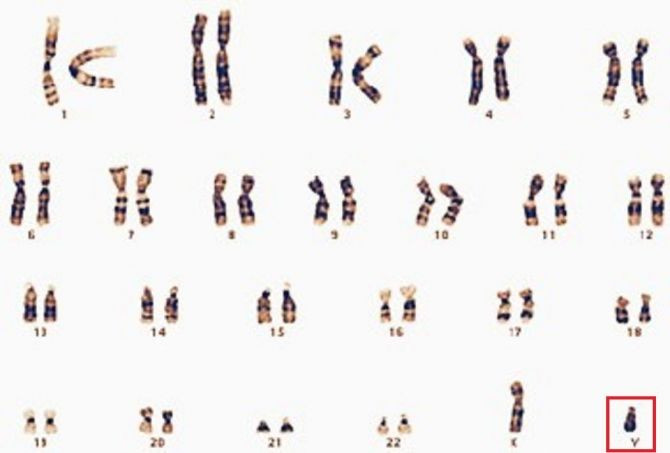Heart Disease Can be Inherited Via Common Y Chromosome

A new study finds that nearly one in five men carry a version of the Y chromosome that significantly increases their risk of heart disease, according to a new study that may partially answer the mysterious gender disparity associated with coronary artery disease.
Experts say that while heart disease is the leading killer of both men and women, about two-thirds of heart patients are male and generally affect men a decade earlier than it does women.
University of Leicester researchers examined the DNA of over 3,000 British men and found that 90 percent of the male chromosomes belonged to two major groups, one of which is the haplogroup I gene variant which increased the risk of heart disease by 50 percent compared to the other variant, haplogroup R1b1b2.
Researchers noted that this increased risk was independent of traditional cardiovascular and socioeconomic risk factors like cholesterol, smoking, diabetes or quality of living.
Dr. Maciej Tomaszewski, from the University of Leicester, and his team said that they are still unsure as to which genes in the variant group are responsible for the increased risk and why the genes have this effect.
However, researchers stressed that the finding are significant in the world of genetics because it linked heart disease risk to the male Y chromosome, which have long been assumed to carry relatively few genes that had little to with inheritance beyond determining male sex characteristics.
Tomaszewski posits that the haplogroup R1b1b2 cluster on the male Y chromosome, associated with lower risk of heart disease, may help control inflammation that can lead to the formation of atherosclerotic plaques.
Ultimately, Tomaszewski believes that his findings could lead to new ways to treat and prevent heart disease in men, as well as a genetic test to identify people with greater risk, but as of now men should focus on risk factors that they can control such as frequent exercise and healthy diet to keep their blood pressure and cholesterol levels low.
Dr Hélène Wilson of the British Heart Foundation, which funded some of the work, said that heart disease is the cause of fatal heart attacks and kills around 50,000 men in the UK each year.
"Lifestyle choices such as poor diet and smoking are major causes, but inherited factors carried in DNA are also part of the picture. The next step is to identify specifically which genes are responsible and how they might increase heart attack risk," Wilson said.
The findings are published in The Lancet.



























